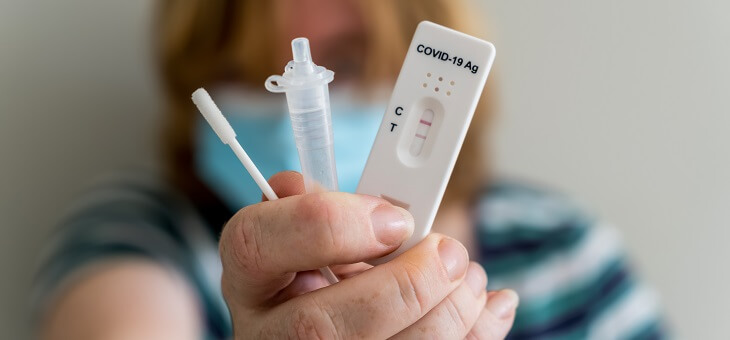Australians are being urged to ‘do the right thing’ and report positive COVID tests to health authorities to keep their fellow citizens safe.
Australia has the highest per capita COVID infection rate in the world, but pathologists are worried that new cases are still underreported.
The vast majority of Australia’s COVID cases are detected by at-home rapid antigen tests (RATs), with the onus on the tester to report a positive result to authorities.
Microbiologist and infectious diseases expert Dr Caitlin Keighley told The New Daily that without accurate data there was no way of knowing the true number of cases in the community.
Read: Forgetting things? Blame COVID-normal brain
“I suspect patients aren’t self-reporting because they don’t realise the importance for public health and potential treatment. Most are probably still self-isolating,” she says.
“When you are unwell, reporting your positive test may not seem like a priority, but it is so important to take the time to do so. It informs us of the public’s resistance to the virus and allows us to take steps to reduce its effect on patients.”
Many people are not reporting positive results due to the high daily case numbers in Australia, feeling their report won’t make much difference when there are still upwards of 40,000 positive cases each day.
But having the most accurate data can help identify (and head off) potential outbreaks before they get out of hand, so reporting positive cases as soon as possible has the potential to save lives.
Read: Reducing COVID spread by 20 per cent could save thousands
Rather than waiting hours in a phone queue, registering a result is easy and takes only a few minutes through the myGov portal.
Reporting your positive test to authorities also offers you additional help while you’re in isolation for at least seven days.
Your state and territory health authority will connect you with a GP, nurse or other healthcare provider by phone to support you while you’re sick.
They will work with you to monitor your symptoms for as long as they last. You may be required to monitor your temperature, oxygen levels and heart rate while ill.
Read: Four strange COVID symptoms you might not have heard about
The GP or nurse can also advise you about any other medicines that might be needed to manage your symptoms, such as paracetamol or ibuprofen.
The rising case numbers and deaths have also brought into focus the pressing need for people to get a third COVID jab.
About 95 per cent of Australians aged 16 and over have received two doses, but only 69 per cent have received a third dose.
Those aged between 16 to 64 are urged to get a booster shot three months after receiving their second dose.
But for those over 64, the Australian Technical Advisory Group on Immunisation (ATAGI) not only recommends three doses, but also a fourth ‘winter booster’ shot.
So, if you’re yet to get your third shot, you may be falling behind and leaving yourself exposed to serious illness.
If you enjoy our content, don’t keep it to yourself. Share our free eNews with your friends and encourage them to sign up.

